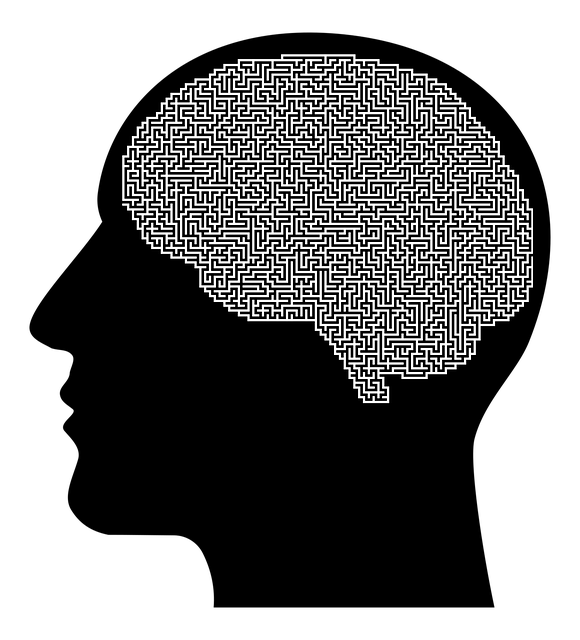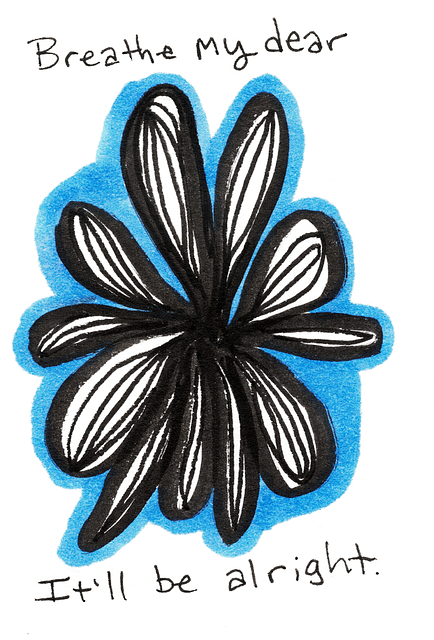Substance abuse among the elderly is often overlooked due to societal perceptions of aging as stable. Older adults face unique challenges, such as adjustment disorders caused by life changes or loss of independence, increasing their risk of substance misuse. Effective strategies involve understanding these issues and providing tailored interventions like cognitive-behavioral therapy (CBT) for Adjustment Disorder in Elders, promoting healthier coping mechanisms, and fostering self-care routines. Early detection of signs like mood and behavior changes is crucial, along with support through Stress Management Workshops and Mental Wellness Coaching Programs. Tailored therapeutic approaches, group therapy, and stress management workshops significantly reduce relapse risk by offering healthy alternatives for emotional healing and stress management. Preventive measures focus on early intervention, mental wellness coaching, open discussions about adjustment disorder, and community support systems to reduce substance abuse among older adults.
Substance abuse among the elderly is a growing concern, often overshadowed by age-related health issues. This complex issue, including adjustments like Therapy for Elders Adjustment Disorder, requires tailored strategies. This article delves into the intricacies of risk reduction, exploring critical aspects such as understanding elderly substance abuse, identifying early signs and risk factors, effective therapeutic approaches, and the role of community support systems in preventive measures. By addressing these key areas, we can enhance care and improve outcomes for at-risk elders.
- Understanding Elderly Substance Abuse and Adjustment Disorder
- Recognizing Risk Factors and Early Signs
- Therapeutic Approaches for Effective Treatment
- Preventive Measures and Community Support Systems
Understanding Elderly Substance Abuse and Adjustment Disorder

Substance abuse among the elderly is a growing concern, often masked by societal perceptions that view aging as a time of wisdom and stability. However, many older adults face unique challenges that can lead to an increased risk of substance misuse, particularly when dealing with adjustment disorders or trying to cope with the loss of independence. Understanding these issues is crucial for developing effective risk reduction strategies.
Adjustment Disorder, common in the elderly population, is a mental health condition characterized by difficulty coping with significant life changes. It can manifest as substance abuse, offering a form of self-medication. Therapy for Elders Adjustment Disorder focuses on addressing these underlying issues through tailored interventions. This may include cognitive-behavioral therapy to help individuals develop healthier coping mechanisms, enhance their understanding of mind over matter principles, and foster the creation of a robust self-care routine for better mental health—all essential components in mitigating substance abuse risks among this vulnerable demographic.
Recognizing Risk Factors and Early Signs

Recognizing risk factors is a pivotal first step in mitigating substance abuse issues. For older adults, certain vulnerabilities can increase the likelihood of problematic substance use. These include psychological disorders such as Adjustment Disorder, which often manifests during significant life changes or stress. Recognizing early signs like sudden changes in mood, behavior, or routine can help identify these hidden risks. Caregivers and loved ones play a crucial role by staying vigilant for any unusual symptoms, especially when coupled with increased isolation or a decline in mental wellness.
By being attuned to these indicators, individuals can seek appropriate support, including therapy tailored for older adults with Adjustment Disorder. Additionally, promoting healthy coping mechanisms through Stress Management Workshops and Mental Wellness Coaching Programs can be instrumental in preventing substance abuse. These initiatives focus on developing robust mental wellness strategies, ensuring individuals have the tools to navigate stress effectively without resorting to harmful substances.
Therapeutic Approaches for Effective Treatment

Effective treatment for substance abuse among older adults often involves therapeutic approaches tailored to their unique needs and challenges. One such approach is cognitive-behavioral therapy (CBT), which helps individuals identify and change negative thought patterns and behaviors associated with drug or alcohol use. CBT also addresses underlying conditions, such as adjustment disorders, commonly seen in this demographic. By focusing on emotional healing processes, CBT empowers seniors to manage their emotions and triggers more effectively.
Additionally, group therapy sessions facilitate social connections and peer support, which are crucial for recovery. These settings encourage open discussions about struggles and successes, fostering a sense of community. Stress management workshops led by mental health professionals within these groups can equip older adults with coping strategies tailored to their age-related stressors. Emotional regulation techniques learned here can significantly reduce the risk of relapse by providing healthy alternatives to managing stress and difficult emotions.
Preventive Measures and Community Support Systems

Preventive measures play a pivotal role in mitigating substance abuse among vulnerable populations, such as older adults. Early intervention and mental wellness coaching programs can be instrumental in identifying at-risk individuals and providing them with the necessary tools to enhance their inner strength. By fostering open conversations about mental health challenges like adjustment disorder in elders, communities can reduce the stigma associated with seeking therapy. This encourages older adults to proactively address potential issues before they escalate into substance abuse.
Community support systems, including social skills training programs, serve as a safety net by offering peer-to-peer connections and shared experiences. These initiatives create an environment where individuals feel understood and supported, thereby increasing their resilience against the allure of substance abuse. Through collaborative efforts involving mental wellness coaches, community centers, and local healthcare providers, comprehensive strategies can be developed to cater to diverse needs, ultimately reducing risks associated with substance misuse in older demographics.
Addressing substance abuse in elderly individuals requires a multi-faceted approach, from recognizing early signs and risk factors to implementing effective therapeutic strategies. Understanding the unique challenges of Elderly Substance Abuse and Adjustment Disorder is crucial. By combining individual therapy for elders adjustment disorder with community support systems, we can significantly reduce risks and improve outcomes. Preventive measures, such as education and early intervention, play a vital role in mitigating potential harm. Through these comprehensive risk reduction strategies, we can foster healthier, more supportive environments for the elderly population.














